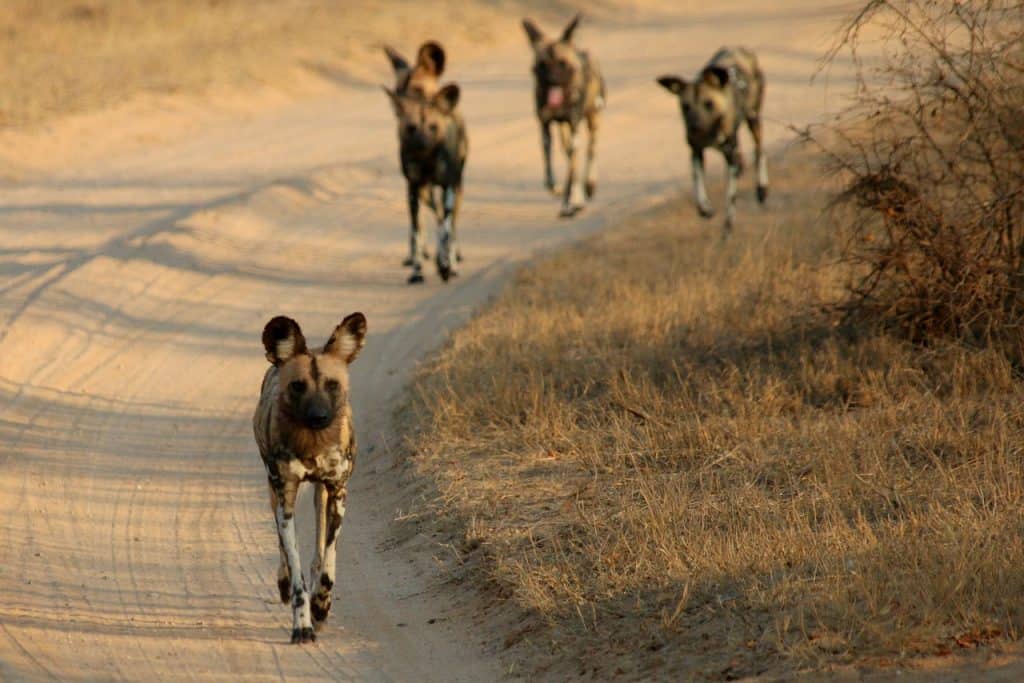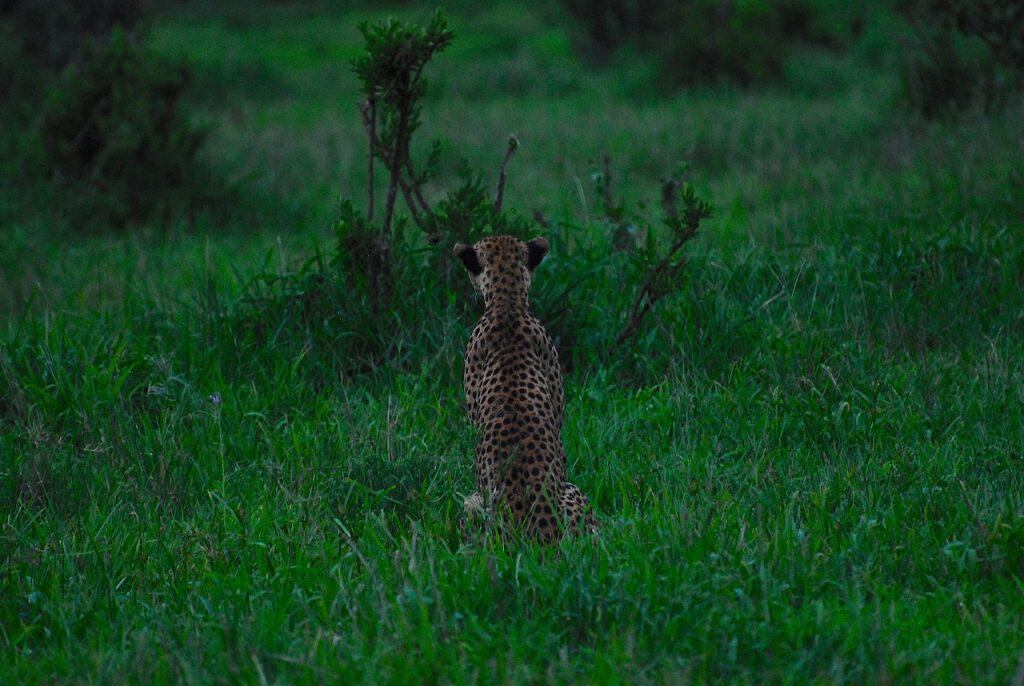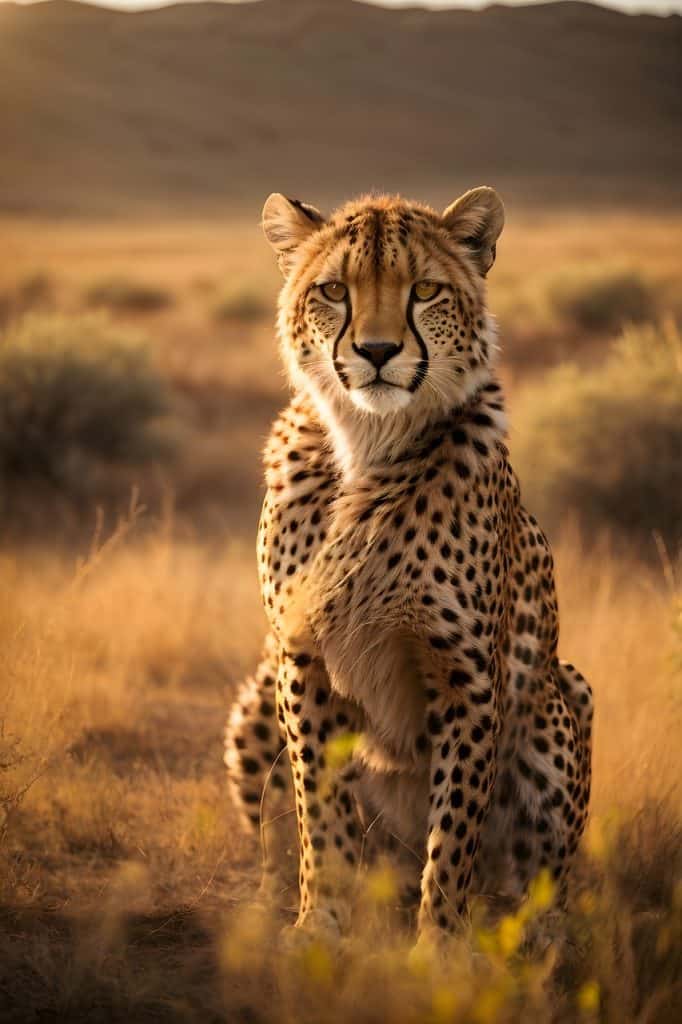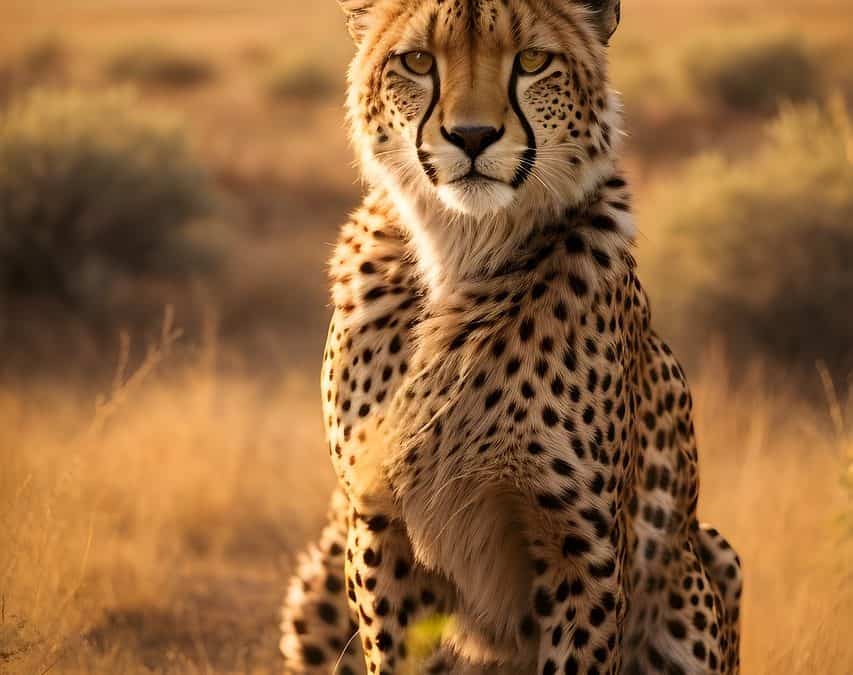So, you’re curious about whether it’s actually legal to hunt endangered species in Africa, huh? Well, let’s dive into this controversial topic and explore the various laws and regulations surrounding this issue. With Africa’s rich wildlife diversity and the threats faced by many endangered species, it’s important to understand the legal framework that governs hunting practices in the continent. From the Convention on International Trade in Endangered Species of Wild Fauna and Flora (CITES) to individual country laws, we’ll take a closer look at the complexities and debates surrounding hunting endangered species in Africa.

International Regulations
Convention on International Trade in Endangered Species of Wild Fauna and Flora (CITES)
The CITES is an international treaty that aims to regulate the trade of endangered species worldwide, including Africa. It was implemented in 1975 and currently has 183 member countries. CITES works by establishing different levels of protection for species through its appendices.
CITES Appendices I, II, and III
CITES categorizes species into three different appendices based on their level of endangerment and the degree of regulation they require. Appendix I includes species threatened with extinction, and their trade is heavily restricted. Appendix II includes species that are not necessarily threatened with extinction, but their trade needs to be regulated to ensure their survival. Appendix III includes species that are protected in at least one country and require cooperation from other countries to regulate their trade.
Regulation of hunting endangered species under CITES
Under CITES, hunting of endangered species is generally prohibited, especially for species listed under Appendix I. Exceptions can be made for scientific research, captive breeding for conservation purposes, and non-commercial hunting trophies. However, strict permits and controls are in place to ensure that hunting is sustainable and does not harm the overall population of the species.
Exceptions to the hunting ban
In some cases, hunting of endangered species may be allowed for sustainable use and conservation purposes. This can include situations where hunting revenue contributes to conservation efforts, local communities are involved in decision-making, and hunting activities are carefully regulated and monitored. Such exceptions are subject to stringent controls and require approval from relevant authorities to prevent abuse and ensure the long-term survival of the species.
National Laws and Regulations
Legislation in African countries
African countries have their own national laws and regulations to protect endangered species and regulate hunting. These laws often align with international agreements such as CITES but may also have additional measures tailored to the specific needs of each country. The legislation takes into account the conservation status of species, their ecological role, and the cultural significance of hunting in local communities.
Protected areas and national parks
A crucial aspect of conservation in many African countries is the establishment of protected areas and national parks. These areas serve as sanctuaries for wildlife and act as a buffer against illegal hunting and habitat destruction. Strict regulations are enforced in these areas to safeguard endangered species and promote their recovery. Hunting is generally prohibited in protected areas, although exceptions may be made for sustainable and controlled hunting practices.
Permits and licenses for hunting
To ensure that hunting is legal and sustainable, African countries have implemented permit and licensing systems. These systems require hunters to obtain the necessary authorization before engaging in hunting activities. Permits typically specify the species, gender, and age of the animal that can be hunted, as well as the designated hunting area. By carefully regulating hunting, authorities can monitor the impact on endangered species and enforce compliance with conservation laws.
Enforcement of hunting laws
The effectiveness of hunting regulations ultimately depends on their enforcement. African countries employ various strategies to ensure compliance with hunting laws, including regular monitoring, patrols, and penalties for illegal hunting. Collaboration between wildlife rangers, law enforcement agencies, and local communities is crucial in detecting and preventing illegal hunting activities. Strong enforcement not only deters potential offenders but also protects the integrity of conservation efforts and promotes sustainable hunting practices.
Conservation Efforts
Role of conservation organizations
Conservation organizations play a vital role in preserving endangered species in Africa. These organizations work alongside governments, local communities, and international bodies to develop and implement conservation strategies. They engage in scientific research, habitat restoration, and anti-poaching efforts to safeguard the habitats and populations of endangered species. Conservation organizations also raise awareness about the importance of preserving biodiversity and advocate for stronger conservation regulations.
Community-based conservation programs
Incorporating local communities into conservation initiatives is crucial for sustainable and effective conservation. Community-based conservation programs recognize the rights and needs of local communities while promoting the conservation of endangered species. By involving communities in decision-making processes, providing alternative livelihoods, and supporting sustainable hunting practices, these programs create a sense of ownership and ensure that conservation efforts align with local cultural values.
Anti-poaching efforts
Illegal poaching poses one of the gravest threats to endangered species in Africa. Conservation organizations, alongside governments and local communities, are actively involved in anti-poaching efforts. These efforts include training and equipping wildlife rangers, implementing sophisticated surveillance technologies, and strengthening law enforcement to detect, prevent, and prosecute poachers. By combating illegal hunting and trade, anti-poaching initiatives aim to protect endangered species from further decline.
Educational initiatives
Education plays a pivotal role in creating a conservation-minded society. Conservation organizations and governments in Africa are actively engaged in educational initiatives that promote environmental awareness and a deeper understanding of the importance of protecting endangered species. These initiatives target schools, local communities, and the general public, raising awareness about the impact of hunting on biodiversity and fostering a sense of responsibility towards conservation.
Effects of Hunting on Endangered Species
Ecological impact of hunting
Hunting can have various ecological impacts on endangered species. Targeting specific individuals within a population can disrupt social structures, affecting breeding patterns, and reducing genetic diversity. Additionally, overhunting can lead to imbalances in ecosystems, causing cascading effects on other species. By removing key predators or prey, hunting can disrupt natural ecological processes, impacting the overall health and stability of ecosystems.
Role of trophy hunting in conservation
Trophy hunting, although controversial, can have positive effects on conservation under specific circumstances. It involves legally hunting a limited number of individuals for their trophies, with the revenue generated contributing to conservation efforts. Proponents argue that trophy hunting can incentivize landowners and local communities to preserve habitat and protect endangered species. However, strict regulations and oversight are necessary to ensure that trophy hunting does not have negative conservation consequences and does not undermine efforts to protect endangered species.
Negative consequences of illegal hunting
Illegal hunting, also known as poaching, poses severe threats to endangered species in Africa. Poachers often target high-value species for their meat, skins, horns, or bones, driven by demand in illegal wildlife trade markets. This illegal trade not only decimates populations but also fuels corruption and organized crime. The negative consequences of illegal hunting include the loss of biodiversity, disruption of ecosystems, and negative socioeconomic impacts on local communities. Efforts to combat poaching are essential to protect endangered species and maintain ecological balance.

Controversies and Debates
Ethical considerations
The debate around hunting endangered species is often punctuated by ethical considerations. Some argue that all hunting of endangered species, regardless of the circumstances, is ethically wrong given the precariousness of their population. Others contend that hunting can be ethically acceptable if it aligns with conservation objectives and provides benefits to local communities. Striking a balance between preserving biodiversity and respecting animal rights remains a subject of ongoing ethical discussions.
Economic benefits vs. conservation concerns
The economic benefits of hunting, particularly in the form of revenue generated through trophy hunting or tourism, are often cited as a justification for allowing certain hunting practices. Proponents argue that these economic benefits can fund conservation efforts, create jobs, and support local communities. However, opponents express concerns that prioritizing economic gains may lead to unsustainable hunting practices and compromise long-term conservation goals. Balancing economic benefits with conservation concerns is a significant challenge in managing hunting endangered species.
Debate over sustainable use and hunting quotas
Determining sustainable hunting practices and setting hunting quotas is a contentious issue. Critics argue that hunting quotas may be set too high or inaccurately estimated, leading to overexploitation of endangered species. It is essential to base hunting quotas on scientific research, population assessments, and ecological carrying capacities to ensure that hunting is genuinely sustainable. The ongoing debate over sustainable use and hunting quotas underscores the need for robust monitoring and adaptive management strategies to protect endangered species while allowing for controlled hunting activities.
Success Stories
Conservation success stories in Africa
Despite the challenges, there have been notable conservation success stories in Africa. Efforts to protect endangered species such as the black rhinoceros, African elephant, and mountain gorilla have led to population recoveries. Collaborative initiatives between governments, conservation organizations, and local communities have played a pivotal role in these success stories. By implementing strict regulations, investing in anti-poaching measures, promoting sustainable hunting practices, and engaging local communities, these conservation efforts demonstrate that it is possible to reverse the decline of endangered species.
Species recovery through hunting regulations
Hunting regulations, when properly implemented and enforced, can contribute to the recovery of endangered species. By prohibiting hunting or allowing controlled hunting quotas, authorities can manage and monitor populations more effectively, reducing the risk of overexploitation and promoting reproductive success. Examples such as the recovery of the African elephant population in certain regions show that hunting regulations, alongside other conservation efforts, can contribute to species recovery and long-term conservation.
Community involvement in conservation
Empowering local communities and involving them in conservation initiatives is a key element of successful conservation strategies. When communities have a stake in protecting endangered species, they become active participants in safeguarding their natural heritage. By providing alternative livelihoods, promoting sustainable hunting practices, and recognizing traditional knowledge and rights, communities can contribute to conservation efforts while also benefiting socially and economically. Community involvement fosters a sense of ownership and responsibility, creating a sustainable conservation model.

Challenges to Effective Conservation
Lack of resources and funding
Insufficient resources and funding present significant challenges to effective conservation in Africa. Conservation efforts require adequate funding to support activities such as anti-poaching patrols, habitat restoration, and community engagement programs. Limited budgets can severely impact the ability to enforce hunting regulations, invest in conservation infrastructure, and provide training to relevant personnel. Closing the funding gap and ensuring sustainable financial support for conservation initiatives is crucial to overcome this challenge.
Corruption and illegal wildlife trade
Corruption within government agencies and weak law enforcement contribute to the illegal wildlife trade and undermine conservation efforts. Bribery, poaching syndicates, and inadequate penalties for wildlife crimes create loopholes that enable the illegal hunting and trafficking of endangered species. Addressing corruption and strengthening law enforcement are essential for effective conservation. Transparency, accountability, and strict penalties for wildlife crimes must be enforced to combat corruption and curtail the illegal wildlife trade.
Conflicts between local communities and conservation initiatives
There can be conflicts between local communities and conservation initiatives, primarily when communities perceive a loss of rights, livelihoods, or traditional practices due to conservation regulations. These conflicts can hinder conservation efforts and breed resentment towards preservation measures. Ensuring equitable distribution of benefits, engaging local communities in decision-making processes, and providing support for sustainable alternative livelihoods can help address these conflicts and foster collaboration between communities and conservation initiatives.
Role of Tourism
Impact of wildlife tourism
Wildlife tourism can have both positive and negative impacts on endangered species and their habitats. Responsible wildlife tourism can contribute to conservation efforts by generating revenue for conservation programs, raising awareness, and supporting local communities. It provides economic incentives for protecting habitats and wildlife populations. However, unregulated or poorly managed tourism can have adverse effects, such as habitat degradation, disturbance to wildlife, and disruption of natural behaviors. Sustainable tourism practices, including visitor education, controlled access, and habitat preservation, are necessary to ensure the long-term viability of wildlife tourism.
Photographic safaris vs. hunting tourism
In recent years, there has been a shift towards promoting photographic safaris as an alternative to hunting tourism. Photographic safaris focus on observing and photographing wildlife in their natural habitats, without causing harm to individuals or populations. Advocates argue that this form of tourism aligns better with conservation goals by promoting non-consumptive interactions with wildlife. However, it is important to recognize that hunting tourism, when properly regulated, can also contribute to conservation efforts through revenue generation and community involvement. The balance between the two forms of tourism depends on the specific context and conservation objectives of each region.
Sustainable tourism practices
Sustainable tourism practices are essential to ensure that tourism activities do not harm endangered species and their habitats. These practices include limiting visitor numbers, establishing designated tourism zones, providing guidelines for wildlife viewing, and enforcing minimum distance regulations. By prioritizing wildlife welfare, reducing environmental impact, and providing economic benefits to local communities, sustainable tourism practices can support conservation goals while offering meaningful and educational experiences for tourists.
Future Perspectives
Improving legislation and enforcement
Continued efforts are needed to improve legislation and enforcement of hunting regulations in Africa. Strengthening laws related to hunting endangered species, increasing penalties for wildlife crimes, and enhancing transparency and accountability are crucial steps. Adequate resources must be allocated to support law enforcement agencies, promote cooperation between government bodies and conservation organizations, and ensure the effective implementation of regulations. Constant review and adaptation of legislation based on emerging conservation challenges are essential to protect endangered species in the future.
Promoting alternative livelihoods
Promoting alternative livelihoods is crucial to reduce the dependency of local communities on hunting endangered species. By providing sustainable economic opportunities, such as eco-tourism, sustainable agriculture, and handicraft production, communities can transition towards environmentally friendly and economically viable options. Collaboration between governments, conservation organizations, and local communities is essential in identifying and implementing alternative livelihood initiatives that support both communities and conservation efforts.
Involving local communities in conservation
An inclusive approach that involves local communities in decision-making processes and conservation initiatives is key to effective conservation in Africa. Recognizing the traditional knowledge and rights of local communities, providing training and education, and establishing partnerships based on mutual respect and benefit can lead to more successful conservation outcomes. Empowering communities as custodians of their natural heritage fosters a sense of responsibility and ownership and ensures that conservation efforts account for local perspectives and cultural values.
Conclusion
Conservation of endangered species in Africa requires a multi-faceted approach that includes international regulations, national laws, community involvement, sustainable tourism practices, and continuous efforts to address challenges. While hunting endangered species is generally prohibited, exceptions can be made for conservation purposes when stringent regulations are in place. Conservation organizations, governments, and local communities play crucial roles in protecting endangered species, combating illegal hunting, and promoting sustainable practices. By balancing economic benefits with conservation concerns, involving local communities, and improving legislation, Africa can continue to safeguard its rich biodiversity and ensure the survival of endangered species for future generations.

